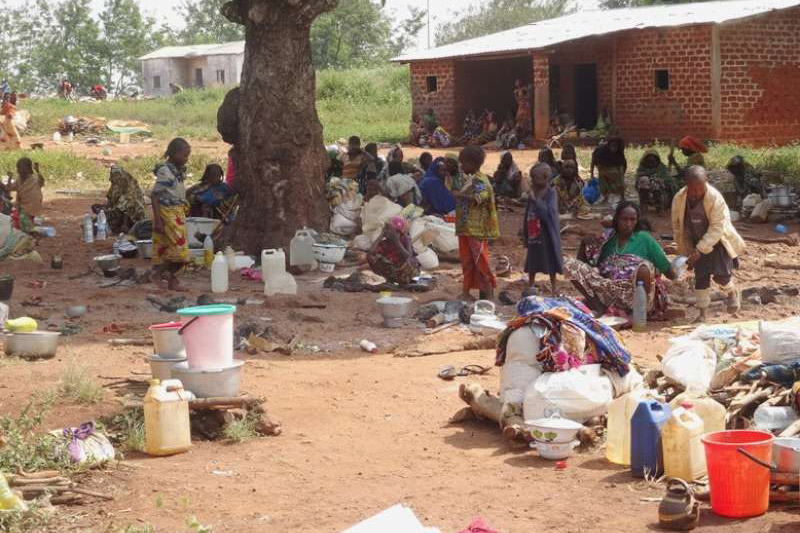
The United Nations refugee agency voiced concern today over the “deteriorating situation” facing more than 400 members of a Muslim minority group trapped by the ongoing violence fracturing the Central African Republic (CAR).
Adrian Edwards, spokesperson for the High Commissioner for Refugees (UNHCR), told reporters in Geneva that 474 members of the Peuhl ethnic group had been trapped for several months in the town of Yaloke, 200 kilometres northwest of the capital city of Bangui, where they were now facing dire humanitarian conditions.
Adults and children had become severely malnourished and more than 30 per cent were suffering from malaria, he noted, adding that there were also six known cases of tuberculosis. In addition, he warned, since their arrival in Yaloke in April, 42 people among the group had died, while others were becoming weaker by the day.
“Despite the presence of international forces, the group at Yaloke is still subject to recurrent threats, verbal and physical aggression, and looting by anti-Balaka militias,” said Mr. Edwards. “Urgent humanitarian assistance is needed along with help in relocating them to safer places, either inside the Central African Republic or to neighbouring countries.”
He added that today, the displaced Peuhl are the only Muslims still in Yaloke, and they are confined to an overcrowded site for the internally displaced.
“They cannot go beyond a 500 metre perimeter because of the dangers. This means that they cannot seek safety elsewhere but it also impedes them from securing a livelihood or seeking other help.”
On 18 December, a UNHCR team had visited the Peuhl in an effort to assess the situation and had been confronted with more than 90 per cent of the group members expressing the desire to seek refuge in neighbouring countries such as Cameroon and Chad.
“People pleaded for assistance with vehicles and security to help them leave the country. Others wanted to be relocated away from Yaloke which is no longer considered viable,” said Mr. Edwards.
More than two years of civil war and sectarian violence have displaced thousands of people in the CAR. According to UNHCR estimates, nearly 440,000 people remain displaced inside the country while some 190,000 have sought asylum across the borders. At the same time, more than 36,000 people – including the Peuhl – remain trapped in enclaves across the country, hoping to find asylum in neighbouring states.
Earlier this month, Under-Secretary-General for Peacekeeping Operations Hervé Ladsous warned of a potentially explosive situation in the CAR amid continuing violent clashes between the mainly Muslim Séléka alliance and anti-Balaka militia, which are mostly Christian.
The UNHCR spokesperson noted that the UN Multidimensional Integrated Stabilization Mission in the CAR (MINUSCA) was playing “a key role in protecting people and had prevented numerous acts of violence” but, he cautioned, the situation was now “becoming worse by the day” and “immediate action” was necessary to help transport the Peuhl to safety.
FRENCH VERSION
Adrian Edwards, porte-parole pour le Haut Commissariat pour lesréfugiés (HCR), a déclaré aux journalistes à Genève que 474membres de l’ethnie Peuhl avaient été emprisonnés pendantplusieurs mois dans la ville d’Yaloké, à 200 kilomètres au nord-ouest de la ville capitale de Bangui, où ils étaient maintenantconfrontés à des conditions humanitaires désastreuses.
et enfants étaient devenu gravement sous-alimentés etplus de 30 pour cent souffraient de paludisme, il a noté, ajoutantqu’il y avait également six cas connus de la tuberculose. En outre,il a mis en garde, depuis leur arrivée à Yaloké en avril, 42personnes parmi le groupe étaient mort, alors que d’autresdevenaient plus faibles de jour en jour.


